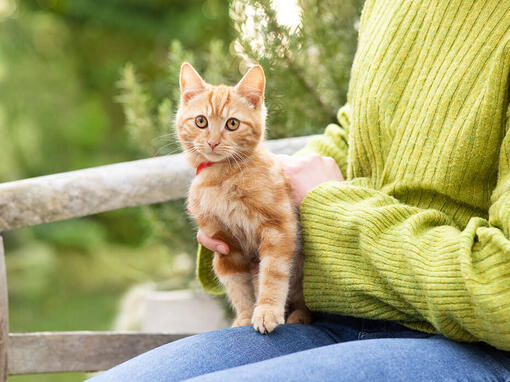- Calm cat
- Friendly but independent cat
- Quiet cat
- Larger stockier cat breed
- Requires grooming every day
- Non hypoallergenic breed
- Needs some out-door space
- May require familiarisation before living with children
Personality
The Cymric cat is a very quiet, playful and intelligent cat. It can be a little shy and reserved around strangers and tends to bond very closely with one individual. It is a breed that seems to keep its kitten-like behaviour well into adulthood.
History and Origins
Country of Origin: Isle of Man (UK)/Canada
The Cymric cat breed is a semi-longhaired version of the Manx cat. Despite its name, which derives from Cymru the Celtic name for Wales, it originates from the Isle of Man. Tailless cats are common on the Isle of Man where inbreeding among the island cats allowed a naturally occurring tailess gene mutation to spread. As for the Manx cat, litters of Cymric kittens can have stumpy tails of various lengths (classed as rumpy-risers, stumpies, and longies) or no tails at all (rumpy). Breeding programmes in Canada in the 1960s lead to popularity of Cymrics in the USA where only completely tailless animals are shown.
The lack of a tail is a severe genetic defect and the Cymric cat's 'deformed' spine may cause health problems including arthritis from an early age. In some cats the anal passage may be narrowed and this can cause bowel blockages. As with all cats, Cymric cats and kittens need vaccinations, parasite control and annual veterinary health checks.
The thick coat of the Cymric cat needs daily brushing to keep it tangle free and it top condition.
While this breed is not widely recognised as one of the best breeds for children, all cats are different and with the proper familiarisation may still be able to live with children.










